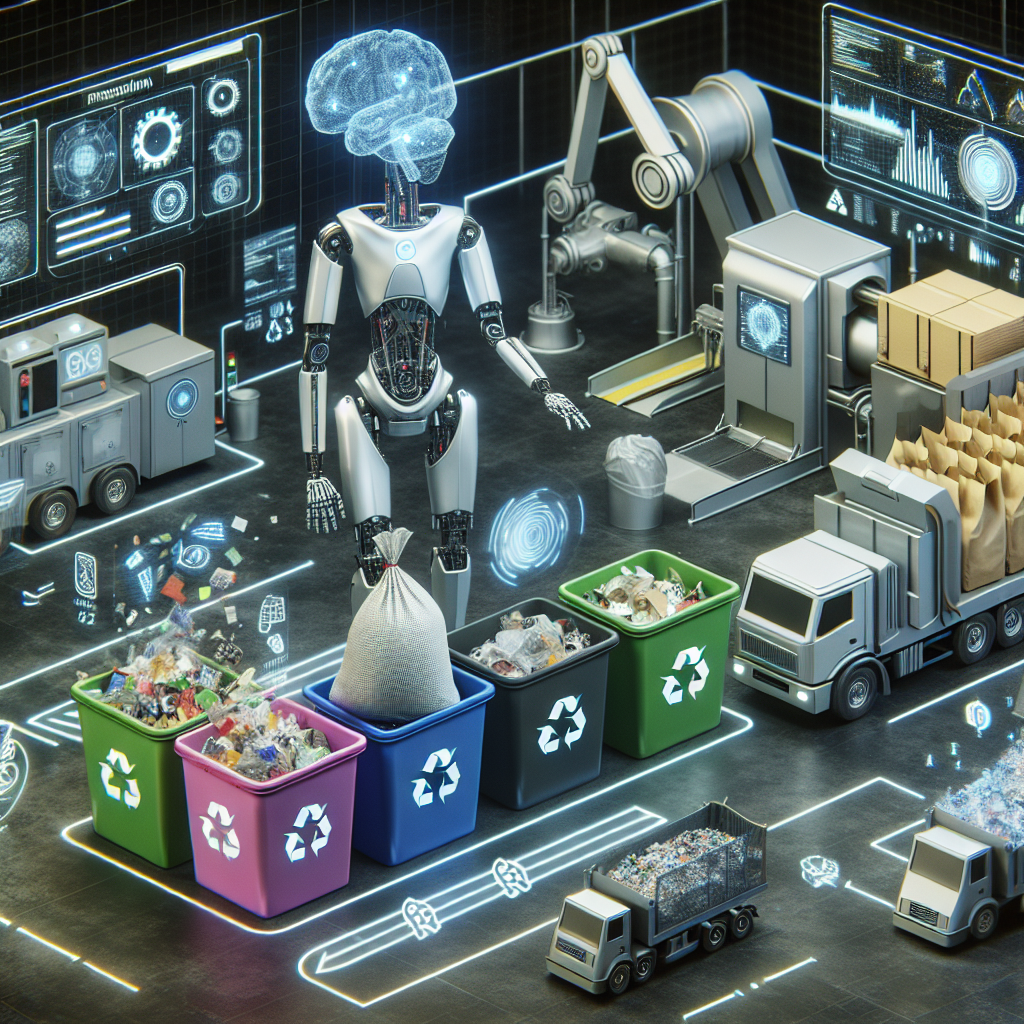Sure! Here is a piece on the topic of AI in waste management, formatted in HTML for your convenience:
“`html
Understanding AI’s Role in Waste Management
Hey there! Are you curious about how artificial intelligence is changing the game in waste management? You’re in the right place. Let’s dive into some common questions and discover how AI is helping us deal with trash more efficiently and sustainably.
1. Why use AI in waste management?
Great question! Waste management is essential for maintaining clean and healthy environments, but it’s also a challenging task. AI technologies can optimize various processes, saving time and resources, and ultimately making waste management more effective. That means less waste ends up in landfills, recycling becomes more efficient, and cities become cleaner. Sounds like a win-win, right?
2. What are some innovative AI applications in this field?
- Smart Bins: Imagine a trash bin that sorts waste for you! AI-powered sensors can identify different types of waste and sort them automatically, improving recycling rates.
- Predictive Analytics: AI algorithms can predict waste generation patterns, helping waste management companies plan collection routes more efficiently and reduce their carbon footprint.
- Robotic Sorting: AI-driven robots are increasingly being used to sort recyclables with higher precision than humans, reducing contamination and improving the quality of recycled materials.
3. What benefits does AI offer to waste management?
- Efficiency: By automating and optimizing processes, AI helps waste management organizations serve communities more effectively and at a lower cost.
- Environmental Impact: Smarter waste handling means reduced pollution and a smaller carbon footprint. That’s great news for our planet!
- Data-Driven Decisions: With the data collected by AI systems, companies can make informed decisions to improve their services continuously.
4. Are there any challenges involved?
AI in waste management is promising, but it’s not without hurdles. Dealing with complex waste patterns and initial cost of technology implementation are a few challenges. However, as technology advances and becomes more mainstream, these challenges are expected to diminish.
5. How can communities get involved?
Getting involved is easier than you think! Encouraging local authorities to adopt AI technologies in waste management is a great start. Plus, you can spread awareness about the benefits of AI in waste management, leading others to support smart solutions too.
Final Thoughts: AI offers a transformative potential for the world of waste management, turning what was once a daunting challenge into a realm of exciting possibilities.
So, what do you think? Isn’t it fascinating how technology can make our approach to handling waste more intelligent and efficient? If you have more questions or want to learn more, feel free to ask!
“`
I hope you find this content user-friendly and engaging! Let me know if there’s anything else you’d like to explore.
